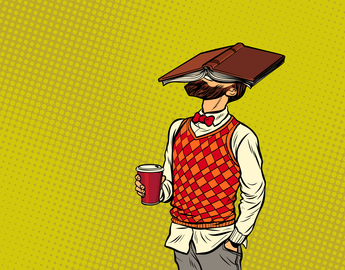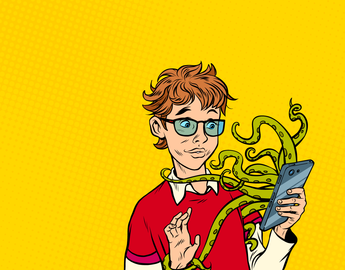
Lesson 1: Introduction to managing team projects
What are team projects?
Team projects, often referred to as group projects, are course-based projects that students complete in groups as a course requirement. When designing team projects, consider the following:
- Create diverse groups based on students interests, experiences, and strengths.
- Integrate team building activities (ie. Ice breakers).
- Connect the project to course learning outcomes to ensure an integrated workload.
- Ensuring the task is complex and has no one answer encourages and requires collaboration for groups to be successful
(University of Waterloo, n.d.; Roberson & Franchini, 2014)
Benefits of team projects
Team projects are often used in higher education as a sustained learning opportunity for students and as a method for instructors to streamline assessment and grading.
Team projects drive deeper engagement
Working in teams actively engages students in their own learning process and provides the opportunity for students to explain their own thinking which ultimately reinforces deeper understanding (Entwiste & Peterson, 2004).
Teamwork fosters skill development
Team projects create opportunities to foster the development of professional skills such as negotiation, time management, communication, respect, empathy and collaboration (Mamas, 2017; Maiden & Perry, 2011).
Teams create a sense of belonging
Team projects can also provide students with a sense of belonging and chance to develop social interactions (Deeter-Schmelz, Kennedy, & Ramsey, 2002).
Together teams accomplish more
Another benefit of team projects is a team can accomplish more than an individual as team work provides opportunities to collaboratively generate, share, and advance ideas (Scotland, 2016).
Common challenges with team projects
Challenges may also be caused by poor conflict resolution skills, lack of or differing task understanding, different expectations between group members, perceived costs of participating in team projects, and varying skill levels, abilities, and knowledge (Cooper, Ashley & Brownell, 2017).
Social loafing and free riding
These challenges often come from individuals that free ride (knowingly put in less effort for a benefit), demonstrate social loafing (individuals put in less effort due to a known barrier such as language or being introverted), or struggle with leadership (Maiden & Perry, 2011; Hackbert, 2004).
Many potential sources of conflict
Challenges may also be caused by poor conflict resolution, lack of understanding of both task and group members, different expectations, perceived costs of participating in team projects, and varying skill levels and knowledge (Cooper, Ashley & Brownell, 2017).
Assessment design challenges
For the instructor, challenges might include devising fair grading and assessment, managing group dynamics, and supporting students throughout the process.
Negative previous experiences
Resistance to collaborate learning or team projects can stem from previous negative experiences by either students or the instructor. Have a clear rationale and purpose for team work and communicate this to students early in the course.
Lesson checklist
-
Explain the benefits and challenges of team projects
-
Identify different technology for creating teams and supporting team projects
-
Reflect on strategies to support student wellbeing when designing team projects
-
Complete the worksheet to identify how you can incorporate these strategies into your team project design
References
Centre for Teaching Excellence, University of Waterloo (n.d.). Implementing Group Work in the Classroom. Retrieved from https://uwaterloo.ca/centre-for-teaching-excellence/teaching-resources/teaching-tips/alternatives-lecturing/group-work/implementing-group-work-classroom
Cooper, K.M., Ashley, M., Brownell, S.E. (2017). Using expectancy value theory as a framework to reduce student resistance to active learning: A proof of concept. Journal of Microbiology & Biology Education, 18(2), 1-8.
Deeter-Schmelz, D.R., Kennedy, K.N., Ramsey, R.P. (2002). Enriching our understanding of student team effectiveness. Journal of Marketing Education, 24(2), 114-124. Entwistle, N.J., Peterson, E.R. (2004). Conceptions of learning and knowledge in higher education: relationships with study behaviour and influences of learning environments. International Journal of Educational Research, 41, 407-428.
Hackbert, P.H. (2004). Building entrepreneurial teamwork competencies in collaborative learning via peer assessments. Journal of College Teaching & Learning, 1(12), 39-52.
Maiden, B., Perry, B. (2011). Dealing with free-riders in assessed group work: results from a study at a UK university. Assessment & Evaluation in Higher Education, 36(4), 451-464.
Mamas, C. (2017). Exploring peer relationships, friendships and group work dynamics in higher education: applying social network analysis. Journal of Further and Higher Education, 42(5), 662-667.
Roberson, B., & Franchini, B., (2014). Effective task design for the TBL classroom. Journal of Excellence in College Teaching, 25(3&4), 275-302.



